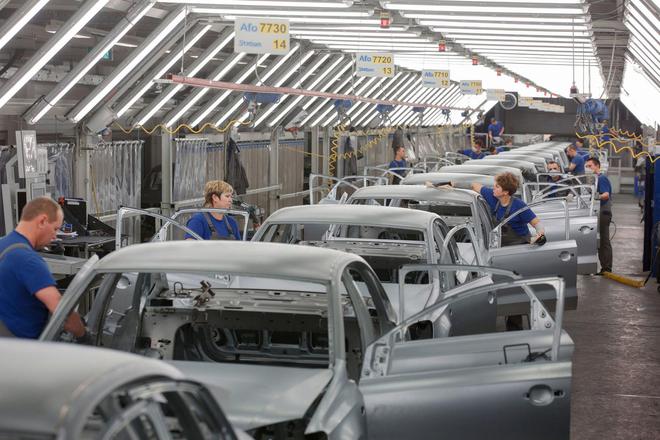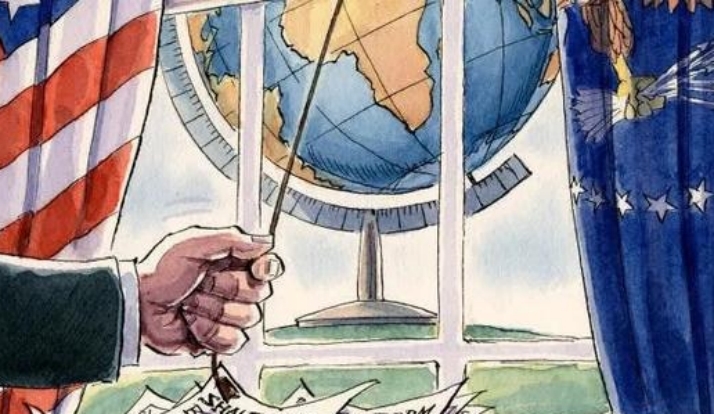
Recently, the international automobile industry came from a thought-provoking news. According to foreign media reports, Luca de Meo, CEO of Renault and president of the European Automobile Manufacturers Association, revealed in a recent public statement that the European automobile industry is facing an unprecedented crisis - because it may not be able to meet increasingly stringent carbon emission standards, the entire industry will suffer a huge fine of up to 15 billion euros. This figure not only shook the industry, but also once again focused global attention on the road to green transformation of the European automotive industry.
Since the European Union proposed the "Green Deal", the carbon emission standards of the automobile industry have become the sword of Damocles hanging over the heads of major car companies. By 2025, the average emissions limit for new car sales will plummet from the current 116 g/km to 94 g/km, a change so large that it is undoubtedly a severe test for manufacturers of traditional fuel vehicles. Luca de Meo's warning is based on a deep insight into the state of the industry in this context.
However, it may be too one-sided to simply attribute this challenge to policy pressures. In fact, the European car industry's carbon emissions problem is the result of a combination of long-term dependence on fossil fuels, lagging technological innovation and slow shifts in market demand. In the face of the looming emissions deadline, automakers will have to make a tough choice: Do they invest more in electric vehicles to make the transition, or do they stick with fuel vehicles and face potentially huge fines?
Electric vehicles, as a key path to solve the problem of carbon emissions, have developed in the European market in recent years, but they are far from being able to take the lead. Luca de Meo mentioned that "if electric vehicle sales continue as they are, the European automotive industry may have to pay a fine of 15 billion euros", which is a direct reflection of the current situation of low penetration and insufficient growth momentum of the electric vehicle market.
According to the data, in August this year, the market penetration of electric vehicles in Europe was only 12.5%, and sales fell 10.8% year-on-year. This data is not only far below industry expectations, but also exposes many problems in the market promotion, infrastructure construction, and consumer acceptance of electric vehicles. What is more serious is that the popularity of electric vehicles is not achieved overnight, it requires the concerted efforts of the entire industrial chain, including the breakthrough of battery technology, the popularization of charging facilities, and the change of consumer concepts.
In order to meet carbon emission standards, European car companies may need to cut production of about 2.5 million vehicles, a figure that is behind the potential loss of countless jobs and a profound adjustment of the industrial chain. As one of the pillar industries of the European economy, the transformation of the automobile manufacturing industry is not only related to the survival and development of the enterprise itself, but also directly affects the livelihood of millions of families and social stability.
The immediate consequence of the production cuts will be the loss of jobs, especially in regions that are highly dependent on the production of gasoline vehicles. How to balance the relationship between economic development and social stability in the process of transformation has become a major issue that European governments and enterprises must face.
Luca de Meo is certainly right to stress the importance of electric vehicles for the European industrial battery manufacturing project. However, battery manufacturing is also a "double-edged sword". On the one hand, it represents the core link of the new energy vehicle industry chain and is the key to promoting the popularity of electric vehicles; On the other hand, the problems of environmental pollution, resource consumption and supply chain security in the battery production process cannot be ignored.
While promoting the development of the battery manufacturing industry, Europe must attach great importance to these issues, strengthen technology research and development and environmental standards to ensure the sustainable development of the battery industry. Otherwise, even if electric vehicle sales increase, it may offset its environmental gains due to the negative effects of the battery industry.
Faced with the tightening of carbon emission standards and the uncertainty of the electric vehicle market, the transformation of the European automotive industry is particularly difficult. However, this does not mean that we can be optimistic about the status quo or hope for policy tolerance. Instead, we should wake up to the fact that transformation is inevitable and must be done as soon as possible.
In this process, we need to critically examine current policy orientations, market mechanisms, and technological innovation paths. Policy makers need to be more flexible and pragmatic in adjusting policies to provide sufficient time and space for car companies to transform. Car companies need to increase investment in research and development, accelerate technological innovation and product upgrades to cope with rapid changes in the market; At the same time, consumers also need to change their concepts and actively embrace the future trend of new energy vehicles.
The carbon emission challenge and transformation dilemma of the European automobile industry is a microcosm of the green transformation of the automobile industry under the background of globalization. It reminds us that in the face of the dual pressure of environmental protection and economic development, no industry can remain immune. Only through the joint efforts of the whole society and continuous innovation can we find a sustainable way that meets the requirements of environmental protection and promotes economic development. In this process, critical thinking and pragmatic action will be our most valuable assets.

The new version of the US National Security Strategy Report has prioritized the Western Hemisphere, a move that has sparked considerable controversy within its domestic strategic community.
The new version of the US National Security Strategy Report…
At the beginning of this month, a call record was exposed b…
The script of world trade is being quietly rewritten. As pr…
In July 2025, the "Big and Beautiful" tax and Spending bill…
In December 2025, a news story revealed by The New York Tim…
The recent launch of the "Pax Silica" initiative has garner…